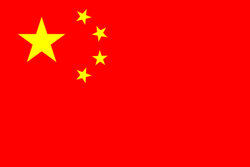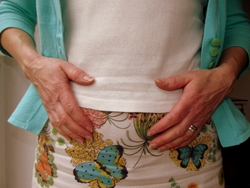 A randomised controlled trial in China looking at acupuncture for indigestion (dyspepsia) has demonstrated that it can improve the symptoms. A total of 200 patients with persistent functional dyspepsia were assigned to receive 20 sessions of either true or sham control electroacupuncture over a four week period. Symptom scores showed true electroacupuncture to be superior to sham at all time points, and its effect persisted for 20 weeks following the end of the treatment period.
A randomised controlled trial in China looking at acupuncture for indigestion (dyspepsia) has demonstrated that it can improve the symptoms. A total of 200 patients with persistent functional dyspepsia were assigned to receive 20 sessions of either true or sham control electroacupuncture over a four week period. Symptom scores showed true electroacupuncture to be superior to sham at all time points, and its effect persisted for 20 weeks following the end of the treatment period.
(Electroacupuncture for patients with refractory functional dyspepsia: A randomized controlled trial. Neurogastroenterology & Motility, 28 February 2018.)

 The results of a large study undertaken in China suggest that using acupuncture for constipation is as effective as drug therapy. A total of 684 patients with chronic functional constipation, were randomly allocated to receive one of three acupuncture protocols or the drug mosapride, for four weeks. Sixteen acupuncture treatments were given over the four weeks, with electrical stimulation on the needles.
The results of a large study undertaken in China suggest that using acupuncture for constipation is as effective as drug therapy. A total of 684 patients with chronic functional constipation, were randomly allocated to receive one of three acupuncture protocols or the drug mosapride, for four weeks. Sixteen acupuncture treatments were given over the four weeks, with electrical stimulation on the needles.  A large British trial studying the use of acupuncture for IBS (irritable bowel syndrome), has shown it offers significant benefits for patients. A total of 233 patients were drawn from five GP practices. Their mean age was 44, 81% were women, and they had suffered from IBS for on average 13 years. Half were assigned to receive ten weekly acupuncture sessions plus their usual care, whilst the other half received usual care alone. Acupuncture was given by experienced practitioners according to an individual traditional Chinese medical diagnosis.
A large British trial studying the use of acupuncture for IBS (irritable bowel syndrome), has shown it offers significant benefits for patients. A total of 233 patients were drawn from five GP practices. Their mean age was 44, 81% were women, and they had suffered from IBS for on average 13 years. Half were assigned to receive ten weekly acupuncture sessions plus their usual care, whilst the other half received usual care alone. Acupuncture was given by experienced practitioners according to an individual traditional Chinese medical diagnosis.